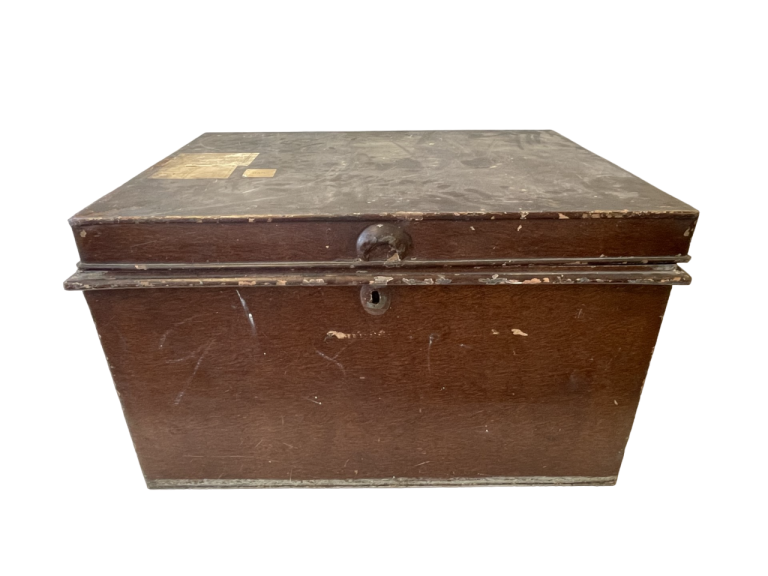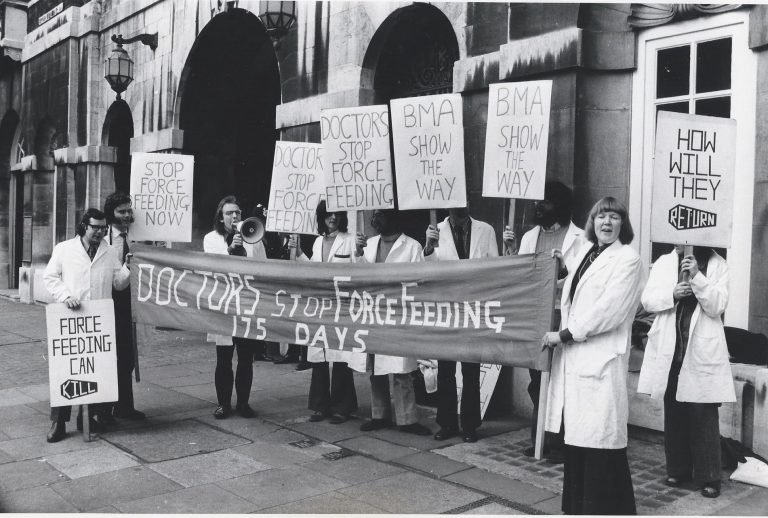Epidemic Belfast
A podcast and website from Ulster University’s School of History that raises challenging and difficult questions about Northern Ireland’s medical history.
Exploring Belfast’s medical past from the 19th century to the present day. A Forgotten History of Disease, ‘Madness’ and Urban Life.
Supported by AHRC-IAA funding awarded to Ian Miller, Senior Lecturer in Medical History, Ulster University.
Subscribe and listen on major platforms

Featured In



Video of the Week
Vaccines at Dundonald House (1969).
The vaccines arrive at Dundonald House. Dr Thomas Baird, the government’s Principle Medical Officer, talks about the symptoms of flu and how the vaccine works, as well as how it will be distributed. Dr Baird also explains the plans should this year’s flu become an epidemic.
Our video archive has been developed with Northern Ireland Screen (Digital Film Archive).
Image of the Week

Tuberculosis
Tuberculosis was once a major killer in Northern Ireland. Signs such as these were located on train carriages, warning passengers not to spread disease by spitting.
One of the many items held at National Museums of Northern Ireland.
Episode of the Week

Thalidomide in Belfast
Find out more about the thalidomide tragedy, including an interview with survivor Jacqueline Fleming.
Stories
Explore Belfast’s medical history through images, podcast interviews, museum collections and more.
Latest Articles
Health and Injury in the Shipyards
Injury and Health in the Docks and Shipyards
Explore Medical Belfast
To use in Google maps, visit: tinyurl.com/2p98m8z3
Images courtesy of National Museums NI.
Have an image to share or a place to add to the map? Contact us!
Meet the Research Team
Over the years, Epidemic Belfast has benefitted from working with world-class researchers, thanks to AHRC-IAA funding.
Ethical Statement
The Epidemic Belfast team remain deeply committed to fostering an inclusive, supportive research culture that prioritises respect for others (including line managers, staff and students), the building of research environments free from harassing or manipulative behaviour and the ethical collation and management of research data, especially that gathered among vulnerable or socially marginalised groups/individuals.
What People Say
In my class “Great Cities: Belfast,” taught in Spring 2022 at Texas Tech University in Lubbock, Texas, United States, my students listened to 8 different podcast episodes after listening to multiple lectures on the social and economic history of 19th century industrial Belfast. In pairs, they prepared presentations on their respective podcast episode topics and shared them with me and the class. The Epidemic Belfast Podcast was an invaluable resource for my students as they were able to learn a part of urban and economic history of which they had no prior knowledge. Additionally, many students drew connections between what they learned in the podcasts in terms of vaccinations, quarantines, and other public health measures to their own lived experiences as students during the COVID-19 Epidemic. Later in the semester, students listened to the episodes on polio and thalidomide. Hearing the actual voices of survivors made this history more real and more moving than any reading I could have assigned. I 100% will use Epidemic Belfast in my future classes and its creators and contributors should be congratulated for making such a resource available to researchers and educators around the world.














